Collection Highlight: Indigenous Voices in STEM
This November, in recognition of Native American Heritage Month, we’re sharing highlights from a collection effort that we began last year for the scholarship of Traditional Ecological Knowledge*, Indigenous Knowledge Systems, and Indigenous Science. This field encompasses a wide spectrum of scientific research, including astronomy, botany, hydrology, and animal sciences.
We invite you to learn about Indigenous Ecological Knowledge below, and then explore nine selected titles from this collection.
— Sheena Campbell, Student Services STEM Librarian
— Cory Craig, Collections Strategies Librarian
How is Indigenous Ecological Knowledge defined?
Indigenous ecologies (also referred to as Traditional Ecological Knowledge*) are often tied to language, religion and spirituality, philosophies and ideologies, and the politics of sovereignty and land rights.
Key concepts in Indigenous ecological cosmologies include the absence of a division between nature and culture, and the idea that many nonhuman entities are considered persons with whom interactions must be based on relations of kinship. These philosophies are reflected in Indigenous ecosystem knowledge, practices, and management, although not always recognized in formal national laws and rights. Indigenous peoples have been active managers of ecosystems, from forests and grasslands to rivers and marine systems.
Indigenous Ecological Knowledge is often characterized as distinct from empirical research, yet many Indigenous scientists study and apply traditional ecological knowledge practices in their work. However, much of the scholarship on Indigenous ecologies is not found in peer-reviewed scientific literature; rather, it appears in “grey” literature or oral histories. Therefore, attention to decolonizing methodologies and to working collaboratively with Indigenous peoples through free, prior, and informed consent and equitable benefit sharing is essential.
- McElwee, Pamela, Álvaro Fernández-Llamazares, Marian Ahn Thorpe, Kyle Powys Whyte, Beth Rose Middleton, Kaitlin Reed, Waaseyaa’sin Christine Sy, Alysse Marie Moldawer. (2018). “Indigenous Ecological Knowledge.” Oxford Bibliographies in Ecology.
Resources from the Collection

The Serviceberry: Abundance and Reciprocity in the Natural World
Kimmerer, Robin Wall, 1953- author.; Burgoyne, John (Illustrator) illustrator. 2024.
Robin Wall Kimmerer (Potawatomi) uses Indigenous wisdom and her knowledge as a botanist and an ecologist to explore reciprocity in nature. She prompts us to consider what traditional Indigenous “gift economies”, where we share abundance, can sustain rather than exploit the natural world.
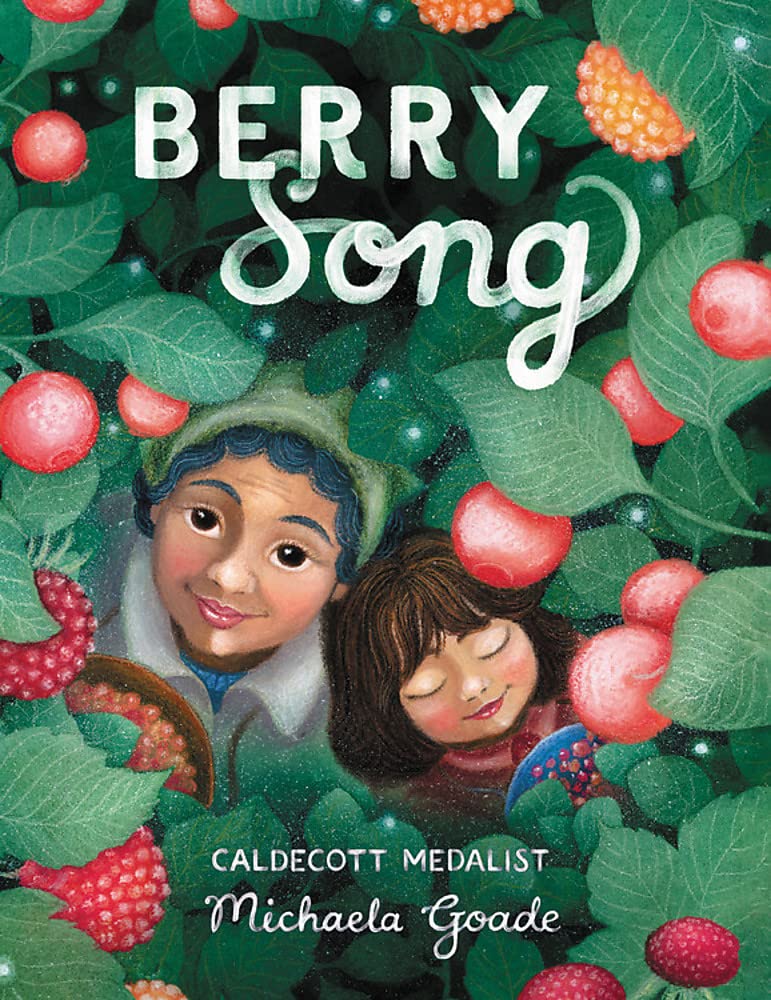
Berry Song
Goade, Michaela, author, illustrator. 2022.
Michalea Goade’s (Tlingit; Haida) book is the perfect companion to Serviceberry. Gorgeously illustrated, this magical intergenerational story follows a Tlingit grandmother as she takes her young granddaughter to a nearby island for a berry-picking adventure in the forest. Goade perfectly captures Kimmerer’s lessons about respect and gratitude for the bounty of the land.

Indigenous Critical Reflections on Traditional Ecological Knowledge
Jacobs, Lara A. 2025.
Lara A. Jacobs (Muscogee; Choctaw) is a complex systems scientist who focuses her research on the ecological and pathogenic impacts of outdoor recreation activities on Tribal treaty lands. By including the work of Indigenous storytellers, poets, and scholars from around the globe in this anthology, she gathers the work of over fifty authors exploring the Indigenous value systems—relationships, reciprocity, and responsibility—that are fundamental to Indigenous Knowledge systems and cultures.
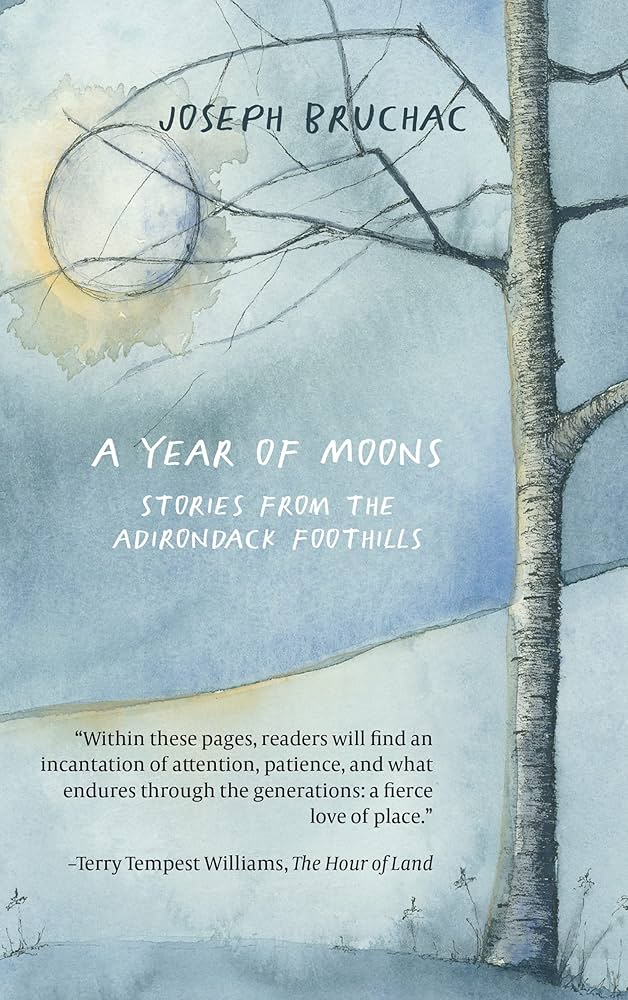
A Year of Moons: Stories from the Adirondack Foothills
Bruchac, Joseph. 2022.
Joseph Bruhac (Nulhegan Abenaki) authors this collection of essays, though his prose is so poetic and lush, that the category doesn’t quite feel sufficient. This work is a reflection on the rhythms of the land, the lunar cycles of the year, the plants and animals that surround us, and the connections that link humans, animals, and the land.
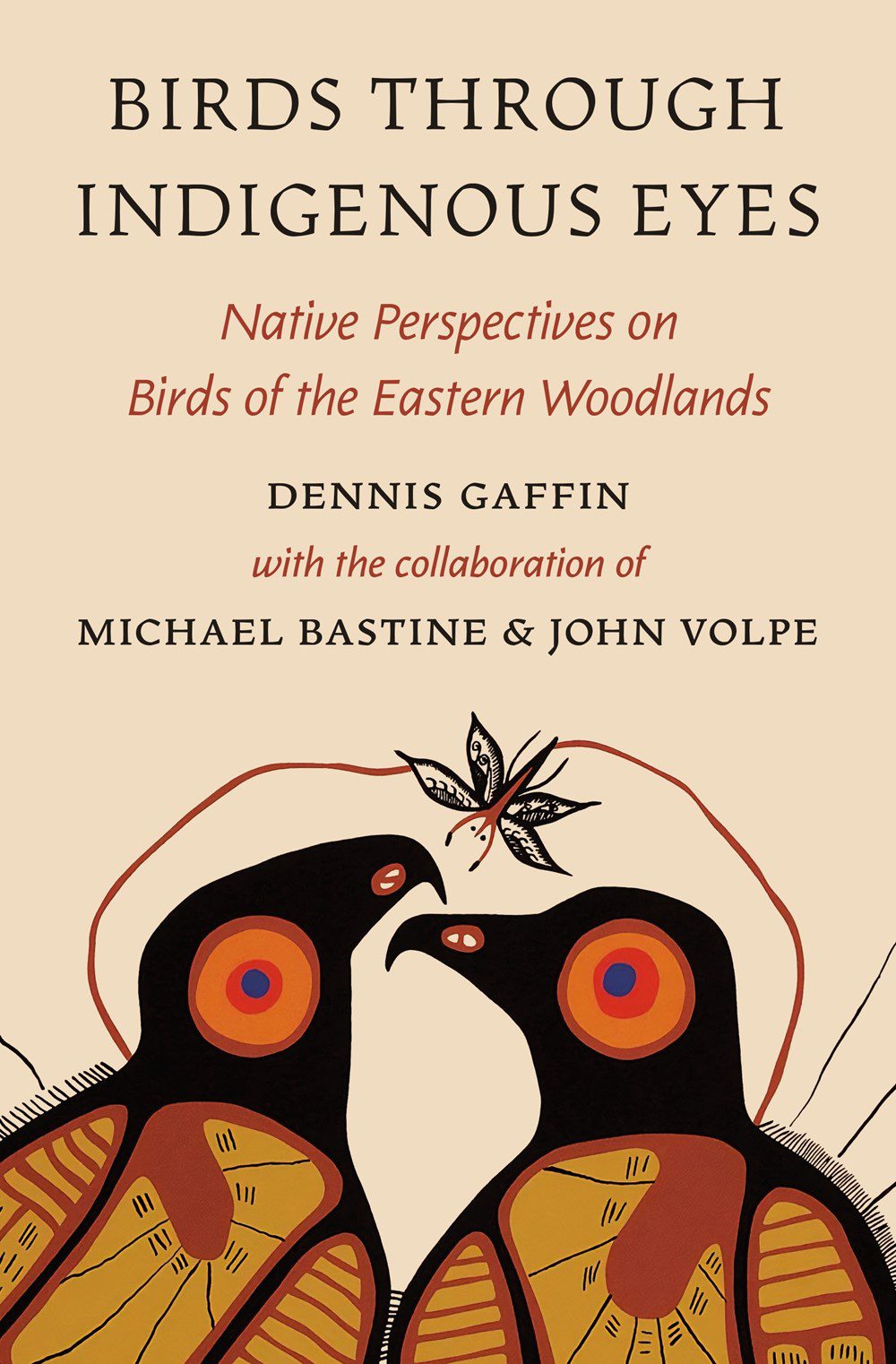
Birds Through Indigenous Eyes: Native Perspectives on Birds of the Eastern Woodlands
Gaffin, Dennis; Michael Bastine and John Volpe. 2024.
Over many years of friendship, anthropologist Dennis Gaffin, naturalist Michael Bastine (Algonquin), and animal healer John Volpe (Ojibwe; Métis) recorded their conversations about a shared passion: the birds of upstate New York and southern Ontario. Bastine and Volpe share their experiences with and beliefs about birds, describing the profound spiritual, psychological, and social roles birds play in the lives of Indigenous people.
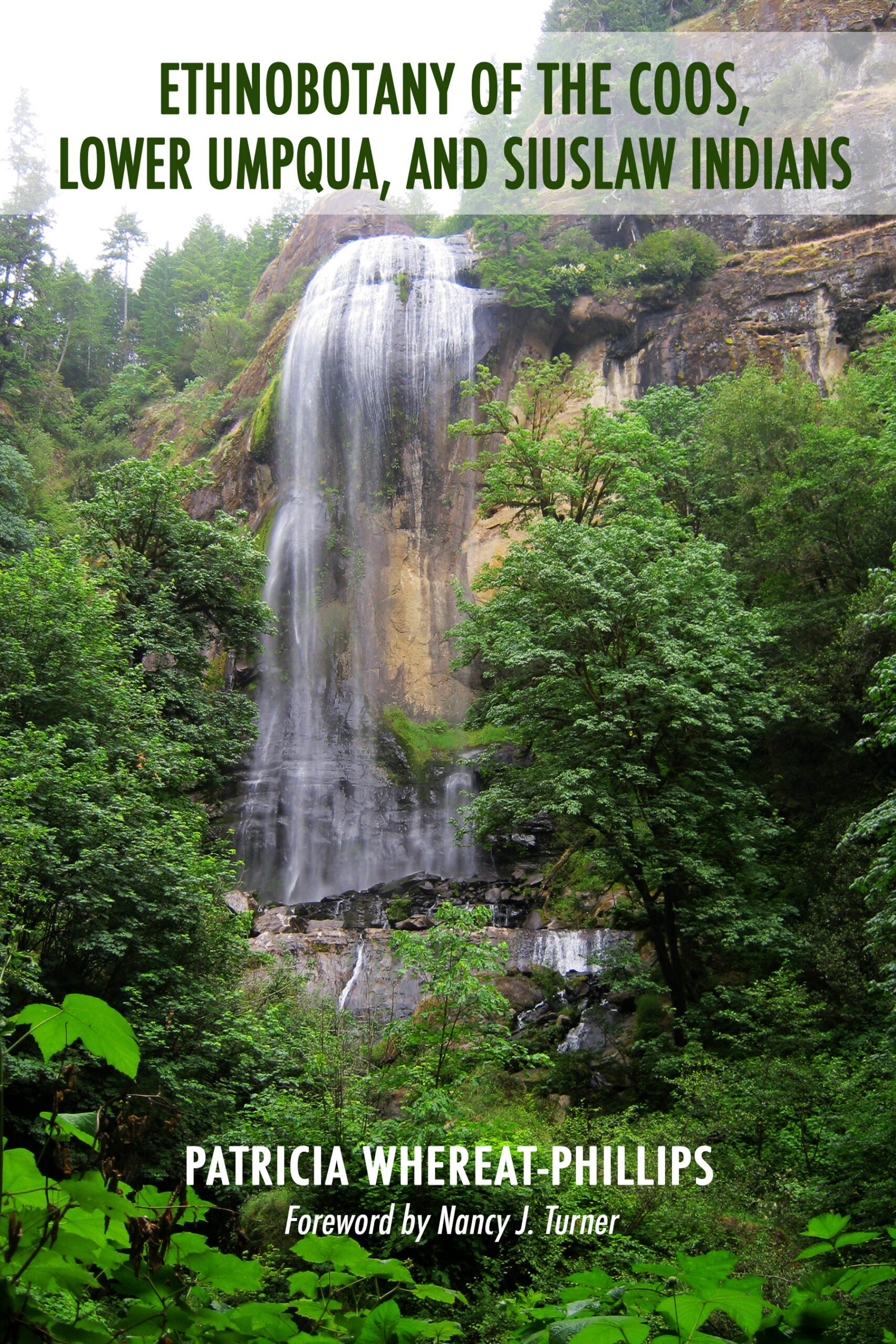
Ethnobotany of the Coos, Lower Umpqua, and Siuslaw Indians
Phillips, Patricia Whereat. 2016
Patricia Whereat Phillips (Coos Bay), who has worked with the U.S. Forest Service and served as Cultural Resources Director for the Confederated Tribes of Coos, Lower Umpqua, and Siuslaw Indians, draws on her expertise in traditional language, storytelling, and ethnobotany. In this book, she documents the native plants used by these culturally related coastal tribes and their traditional applications across the central and southern Oregon coast.
Indigenous Ecologies and Climate Resilience
Indigenous ecologies scholarship also shows how Indigenous peoples are negotiating the impacts of anthropogenic change on the future, as increasing international activism to assert environmental rights and cultural sovereignty has led to a growing body of international law recognizing the rights of Indigenous peoples to their lands, natural resources, and cultures. The challenge of climate change, which is increasing the vulnerability of many Indigenous peoples, has been another source of Indigenous activism.
Indigenous people’s long experience and knowledge of local environments have been a key source of information about the impacts of climate change and how adaptation to it might be fostered. Our selected titles from the collection:
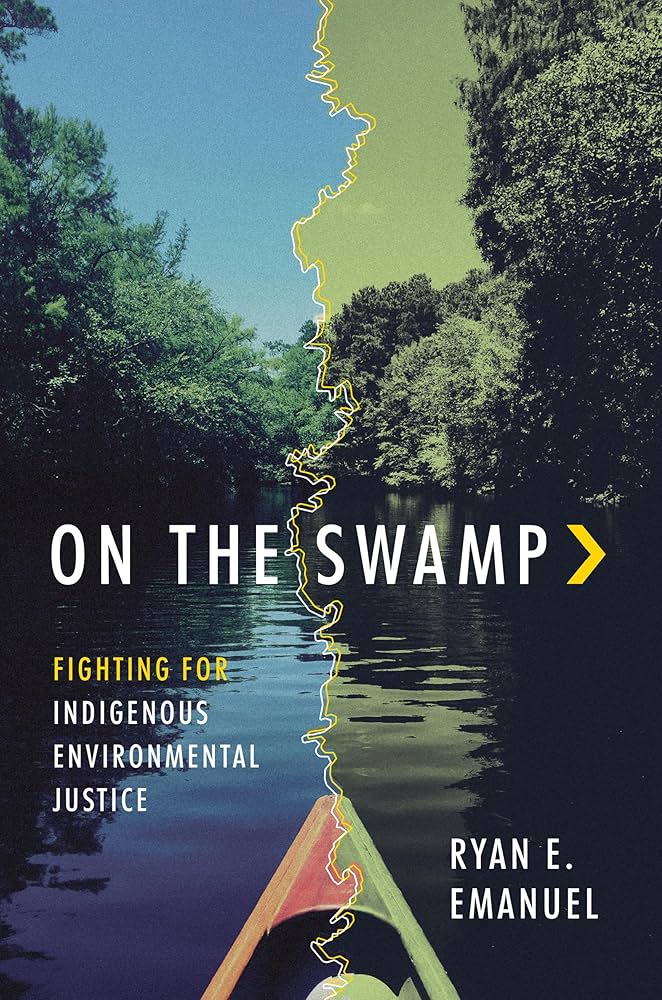
On the Swamp: Fighting for Indigenous Environmental Justice
Emanuel, Ryan. 2024.
Ryan Emanuel (Lumbee), an environmental scientist, shares stories from North Carolina about Indigenous survival and resilience in the face of radical environmental change. Addressing issues from the loss of wetlands to the arrival of gas pipelines, these stories connect the dots between historic patterns of settler colonial oppression and present-day efforts to promote environmental justice and Indigenous rights on the swamp.
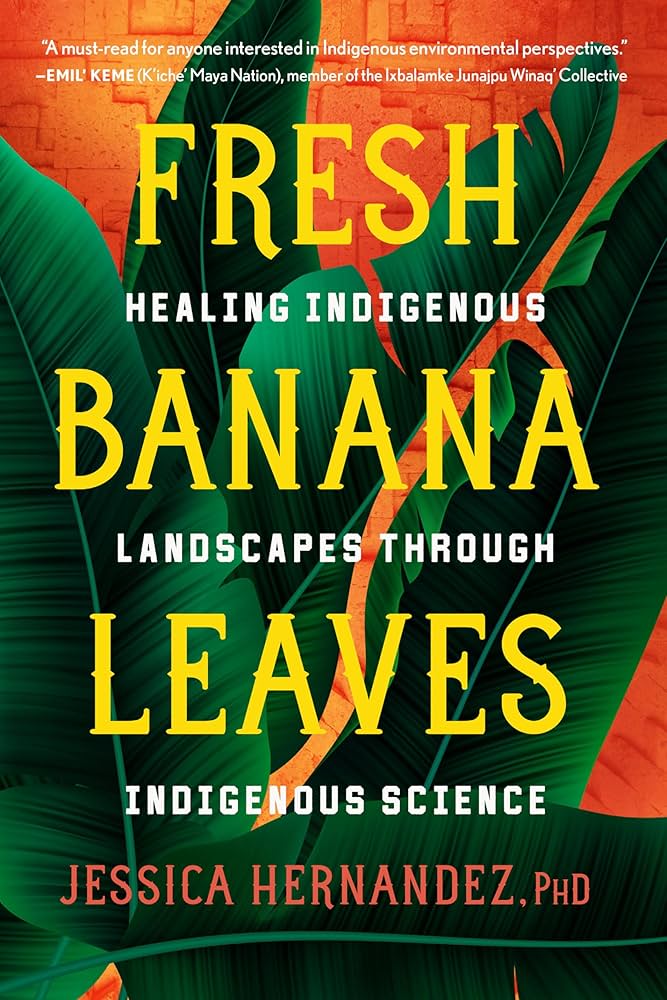
Fresh Banana Leaves: Healing Indigenous Landscapes Through Indigenous Science
Hernandez, Jessica. 2022.
Jessica Hernandez (Maya Ch’ortí; Zapotec), an environmental scientist and the founder of Piña Soul, which supports Black and Indigenous-led conservation initiatives, uses Fresh Banana Leaves to introduce central ideas in the intersectional Indigenous environmental movement. She critiques academic “helicopter research” that exploits impoverished communities, arguing that it is both unethical and produces flawed knowledge. Hernandez positions her book as a corrective, offering an Indigenous voice that future researchers can engage with and build upon.
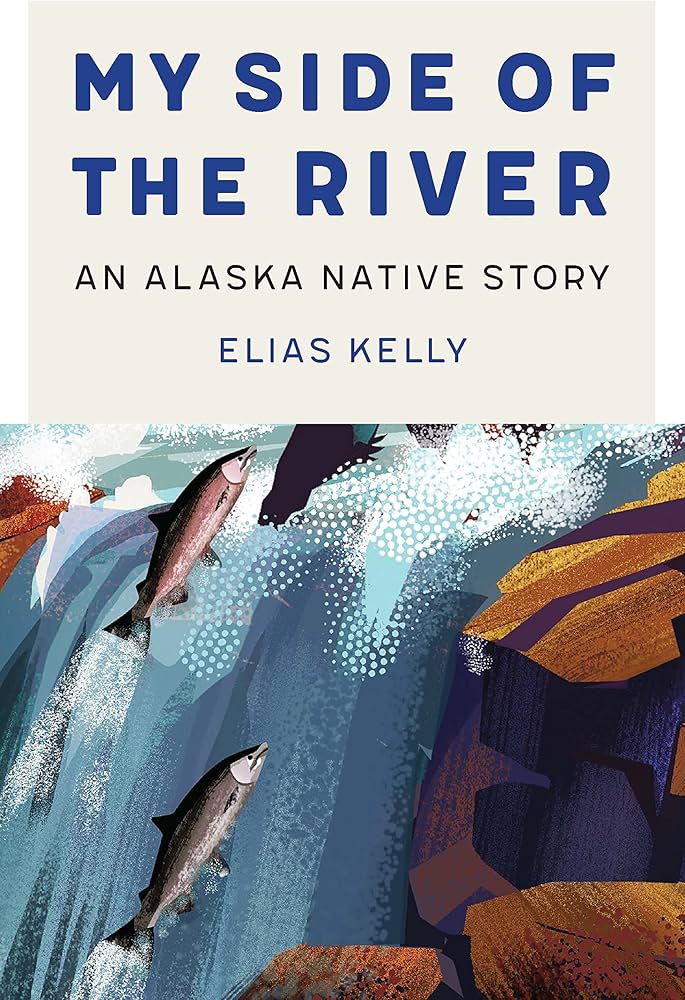
My Side of the River: An Alaska Native Story
Kelly, Elias. 2023.
Elias Kelly (Yup’ik) combines memoir and stories to examine the impact of federal and state regulations on the traditional lives and subsistence practices of Native Alaskan communities. Working as an agricultural specialist, he alternates between personal stories of friends, family, and community and the legal attempts to assimilate Native Alaskans into white U.S. fishing and hunting culture.
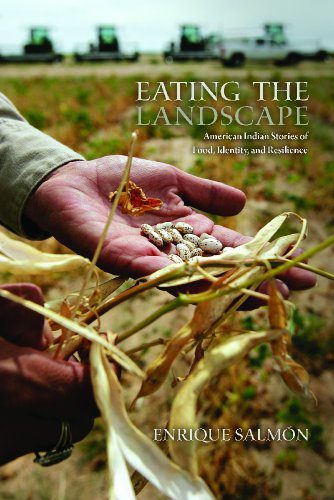
Eating the landscape: American Indian stories of food, identity, and resilience
Salmón, Enrique. 2012.
Enrique Salmón (Rarámuri) weaves his fascinating personal narrative, historical and cultural knowledge as a renowned Indigenous ethnobotanist, with stories American Indian farmers have shared with him to illustrate how traditional Indigenous foodways – from the cultivation of crops to the preparation of meals – are rooted in a time-honored understanding of environmental stewardship. Salmón shows that these collective philosophies provide the foundation for indigenous resilience as the farmers contend with global climate change and other disruptions to long-established foodways, such as extensive industrialization and the genetic modification of food crops.
How to Find Additional Resources
Navigating UC Library Search
It is first important to note that the UC Davis Library recognizes our catalog and resource descriptions contain language that reflects the biases, norms, and perspectives of the time in which they were created. In particular, for resources about persons and groups, this language is often outdated and harmful. These descriptions also incorporate controlled vocabularies, such as the Library of Congress Subject Headings, which include some headings that are offensive or inappropriate. We use international standards for description, but we also support and actively participate in efforts to update and revise these practices as we strive for descriptions that are inclusive, respectful, and do not cause harm.
Finding materials related to Indigenous science can be challenging due to inconsistencies in the language used to catalog library resources. Terms such as “Indigenous,” “Native American,” “Aboriginal,” and “First Nations,” as well as outdated colonial language (“Indians of North America”), are used and applied to literature originating from various historical and cultural contexts in North America.
Consequently, it is important to use a range of terms when searching to understand how different search terms yield different results. Below are some search terms related to Indigenous education. Click on any of the examples under Subject headings and search terms to see a list of results in the catalogue.
Subject Headings and Search Terms
- Indigenous peoples
- Ethnoecology
- Ethnobiology
- Ethnobotany
- Indigenous astronomy
- Indigenous cosmologies
- Indigenous science
- Traditional medicine
- Traditional ecological knowledge
- Traditional ecological knowledge – North America
*In her book, Fresh Banana Leaves: Healing Indigenous Landscapes Through Indigenous Science, Jessica Hernandez notes that, “I personally do not like to use Traditional Ecological Knowledge, even though sometimes this is the only way we can refer to our Indigenous knowledge systems, because to me, traditional ecological knowledge places us within past contexts. It is important to note that in the same way, our environments have adapted, our Indigenous knowledge systems have adapted, and this is why I view it as a science itself—Indigenous science.”